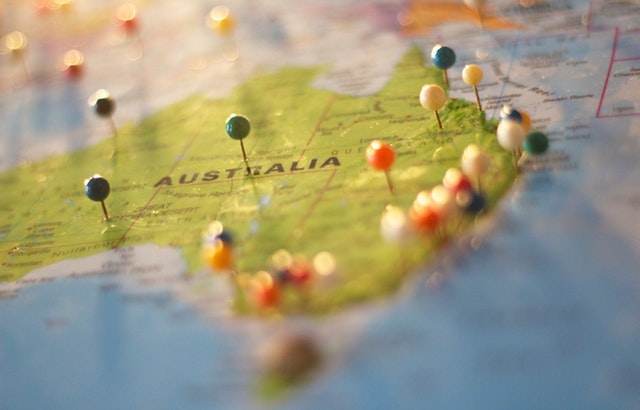Presently the EU is looking into more regulation on digital services and markets, even playing field for all, limits to expansion by Big Tech, hate speech, fines, policing platforms, etc.; backgrounded by talk in Australia of regulating Big Tech more.
The latter is not so related to the EU’s actions but is more about Rupert Murdoch’s legacy media in NewsCorp, and its overbearing influence on its peers, politics and society in Australia, while losing money and asking for subsidies. Nowadays it is demanding constraints on Big Tech i.e. payment for NewsCorp’s (plus other oligopoly legacy media) ‘entertainment content’ and partisan political agit prop, while still attacking the public broadcaster the ABC, restricting the NBN National Broadband Network, unclear tax arrangements and having a near monopoly presence in Australia.
The following gives an overview and summary of EU initiatives from Politico:
Many of Silicon Valley’s biggest companies could face blockbuster fines under new proposals from the European Union announced Tuesday aimed at boosting digital competition and protecting people from online harm.
The announcement represents a watershed moment for Ursula von der Leyen’s Commission, which has made so-called “technological sovereignty,” or efforts to bolster the bloc’s role in digital markets, a central piece of its legislative agenda.
Under the proposals, known as the Digital Markets Act and Digital Services Act, large online platforms like Google, Amazon and Facebook will face new limits on how they can expand their online empires or face levies of up to 10 percent of their global revenue — potentially billions of euros — for unfairly hamstringing smaller rivals.
In the most egregious cases, EU regulators would be granted stronger powers to break up companies that flouted the bloc’s new digital rulebook.
Brussels also outlined separate fines of up to six percent of annual revenue for Big Tech companies — those with at least 45 million users across the 27-country bloc — that fail to limit how illegal material, everything from hate speech to counterfeit products, can spread across their networks…..
Digital Markets Act: Dos and don’ts
The centerpiece of Europe’s digital plans is aimed at boosting online competition in a world dominated by Silicon Valley.
As part of the proposals, the Digital Markets Act will impose new obligations on so-called “gatekeepers,” or online players that determine how other companies interact with online users, to ensure these platforms do not stop others from competing for users. The rules will cover companies offering digital services like online search, social networking, video-sharing platforms, cloud computing, internet messaging services, online operating systems, online marketplaces and advertising products.
Failure to live by these rules could lead to hefty fines up to 10 percent of a company’s global revenue, or — in the worst cases — threats to break up firms that repeatedly break the new rules, a provision that is already baked into EU law…..
Digital Services Act: Greater responsibility
Brussels also unveiled a sweeping reboot of how large platforms must police their platforms for illegal material — rules that have not been updated in two decades.
Under those separate proposals, known as the Digital Services Act, online platforms will have to do more to limit the spread of illegal content and goods. The United Kingdom published similar proposals earlier on Tuesday, while the United States is mulling its own changes to so-called content liability to force platforms to further police what is posted or sold online.
The largest platforms like Facebook, Google and Amazon will have to provide regulators and outside groups with greater access to internal data, and appoint independent auditors who will determine if these firms are compliant with the new rules.
That will require these companies to carry out yearly risk assessments over how they are stopping illegal content and goods from spreading on their networks. National regulators will be granted more powers, including the ability to levy fines of up to six percent of a firm’s annual revenue if companies flout the regulations…..
For EU officials, Tuesday’s announcements mark their latest attempt to create greater competition in digital markets and protect people online from a wave of illegal material.
But many European politicians, tech executives and civil society groups still disagree over how best to promote those goals while still encouraging the bloc’s online economy to compete with those of the U.S. and China.
That balance — Europe pushing for greater control over the online world while also boosting its digital economy — will now take center stage.
“Now, the U.S., us, the Australians, the Japanese are part of a global conversation about how to balance things because the most important thing here is that with size comes responsibility,” Vestager said. “All business operating in Europe — they can be big ones, they can be small ones — can freely and fairly compete online just as they do offline.”
For more articles about AI Artificial Intelligence, Australian Politics, Business Strategy, Consumer Behaviour, CX Customer Experience, Data Protection, Digital Literacy, Digital or e-Consumer Behaviour, Digital Technology, EU Digital Services, EU European Union, EU GDPR, marketing strategy, media, Political Strategy, SEO Search engine optimisation, Small Business, Social Media Marketing, Taxation and Web Marketing.




